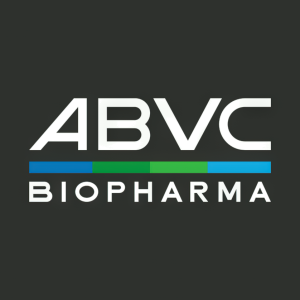ABVC BioPharma Seeks to Revolutionize Mental Health Treatment With a Safe Prozac Alternative, Boasting a MADRS Score Reduction of -13.21
Rhea-AI Summary
ABVC BioPharma announces its ABV-1504 drug as a potential safer alternative to Prozac, which faces discontinuation due to side effects concerns. The drug's active ingredient, PDC-1421 (derived from Radix Polygala), has shown promising results in treating Major Depressive Disorder (MDD) and ADHD, achieving a MADRS score reduction of -13.21 from baseline over 6 weeks.
The company has completed Phase II clinical trials and is moving towards Phase III trials globally, with patents valid until 2041. The treatment demonstrates fewer adverse effects compared to traditional antidepressants, positioning it strategically in growing markets. The global MDD market is expected to reach $14.96 billion by 2032, while the ADHD treatment market shows a 7.3% CAGR through 2032.
Positive
- None.
Negative
- None.
News Market Reaction 1 Alert
On the day this news was published, ABVC gained 6.74%, reflecting a notable positive market reaction.
Data tracked by StockTitan Argus on the day of publication.
FREMONT, Calif., Dec. 19, 2024 (GLOBE NEWSWIRE) -- ABVC BioPharma, Inc. (NASDAQ: ABVC), a clinical-stage biopharmaceutical company focused on innovative treatments in ophthalmology, CNS (central nervous system), and oncology/hematology, today announced in response to the discontinuation of Prozac[1] due to increasing concerns around side effects, ABVC believes its ABV-1504, which has the API, “Radix Polygala”, known as Polygala tenuifolia Willd or PDC-1421, can fill this void in the mental health market. With a robust formulation designed to reduce adverse effects, PDC-1421 promises to offer a safer and more effective solution for patients dealing with MDD and ADHD[2]. ABVC’s ABV-1504 has completed Phase II clinical trials and is heading towards Phase III trials worldwide. ABVC holds patents for MDD and ADHD that have been approved in the USA and other countries and are valid until 2041.
The suspension of Prozac production highlights a rising demand for safer, all-natural alternatives to advanced mental health treatments, marking a pivotal moment for the pharmaceutical and mental health awareness industry. ABVC's ABV-1504 and 1505 have undergone rigorous clinical testing to ensure safety and efficacy, positioning them as real potential options for patients needing reliable, low-risk treatments.
"Our team has dedicated extensive research to developing a treatment that addresses the symptoms of MDD and ADHD and prioritizes patient well-being by reducing the risk of severe side effects," said Uttam Patil, Ph.D., Chief Executive Officer of ABVC. "With Prozac's exit, there's a market need, and we strongly believe that PDC-1421 will help bridge this gap while setting new standards in mental health treatment."
He further added, "PDC-1421 is a novel compound derived from plant sources and has shown promise in treating Major Depressive Disorder (MDD) and Attention Deficit Hyperactivity Disorder (ADHD). In clinical studies, PDC-1421 demonstrated an ability to modulate brain pathways associated with mood regulation and cognitive functions, helping to improve depressive symptoms and enhance focus in patients with ADHD. This therapeutic agent, currently under development, stands out for its favorable safety profile, presenting fewer side effects than many existing antidepressants. As Prozac and other traditional medications face challenges related to adverse effects, PDC-1421 offers a potentially safer and more effective alternative. Based on our internal studies, PDC-1421 has demonstrated significant efficacy in treating Major Depressive Disorder (MDD), achieving a MADRS score reduction of -13.21 from baseline over 6 weeks with a placebo-subtracted difference of -4.1. With a favorable safety profile and fewer adverse side effects than traditional treatments like Prozac, PDC-1421 stands out as a compelling alternative, particularly as Prozac faces production cuts due to safety concerns. This innovative approach offers hope for patients seeking safer, effective options in mental health care."
Driving Growth in Expanding Markets
ABVC BioPharma is strategically positioned in growing markets. The global MDD market is projected to grow from
For more information about ABVC and its subsidiaries, stay updated on the latest updates or visit https://abvcpharma.com. ABVC urges its shareholders to sign up on the Company's website for the latest news alerts; visit https://abvcpharma.com/?page_id=17707
About ABVC BioPharma & Its Industry
ABVC BioPharma is a clinical-stage biopharmaceutical company with an active pipeline of six drugs and one medical device (ABV-1701/Vitargus®) under development. For its drug products, the Company utilizes in-licensed technology from its network of world-renowned research institutions to conduct proof-of-concept trials through Phase II of clinical development. The Company's network of research institutions includes Stanford University, University of California at San Francisco, and Cedars-Sinai Medical Center. For Vitargus®, the Company intends to conduct global clinical trials through Phase III.
Forward-Looking Statements
This press release contains "forward-looking statements." Such statements may be preceded by the words "intends," "may," "will," "plans," "expects," "anticipates," "projects," "predicts," "estimates," "aims," "believes," "hopes," "potential," or similar words. Forward-looking statements are not guarantees of future performance, are based on certain assumptions, and are subject to various known and unknown risks and uncertainties, many of which are beyond the Company's control, and cannot be predicted or quantified, and, consequently, actual results may differ materially from those expressed or implied by such forward-looking statements. None of the outcomes expressed herein are guaranteed. Such risks and uncertainties include, without limitation, risks and uncertainties associated with (i) our inability to manufacture our product candidates on a commercial scale on our own, or in collaboration with third parties; (ii) difficulties in obtaining financing on commercially reasonable terms; (iii) changes in the size and nature of our competition; (iv) loss of one or more key executives or scientists; and (v) difficulties in securing regulatory approval to proceed to the next level of the clinical trials or to market our product candidates. More detailed information about the Company and the risk factors that may affect the realization of forward-looking statements is set forth in the Company's filings with the Securities and Exchange Commission (SEC), including the Company's Annual Report on Form 10-K and its Quarterly Reports on Form 10-Q. Investors are urged to read these documents free of charge on the SEC's website at http://www.sec.gov. The Company assumes no obligation to publicly update or revise its forward-looking statements as a result of new information, future events or otherwise.
This press release does not constitute an offer to sell, or the solicitation of an offer to buy any of the Company's securities, nor shall such securities be offered or sold in the United States absent registration or an applicable exemption from registration, nor shall there be any offer, solicitation or sale of any of the Company's securities in any state or jurisdiction in which such offer, solicitation or sale would be unlawful prior to registration or qualification under the securities laws of such state or jurisdiction.
Contact:
Dr. Uttam Patil
Email: uttam@ambrivis.com
[1] https://www.taiwan-healthcare.org/en/news-detail?id=0slsbhjf5bw318sj
[2] Side effects, or adverse events, associated with ABV-1504, coming from administration of the trial medicine or examination procedure such as the procedure of taking blood (fainting, pain and/or bruising), may lead to gastrointestinal disorders (abdominal fullness and constipation), nervous system disorders (drowsiness, sleepiness, and oral ulcer). In addition, long-term use may cause miscarriages.
[5] https://straitsresearch.com/report/botanical-drugs-market








